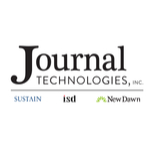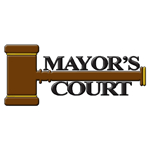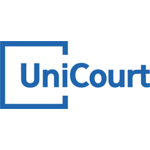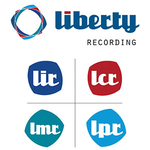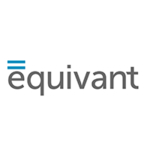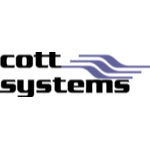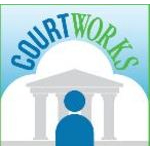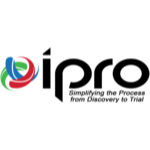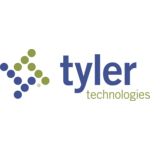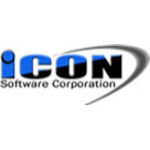TechnologyCounter provides genuine, unbiased real user reviews to help buyers make informed decisions. We may earn a referral fee when you purchase through our links, at no extra cost to you.
List of 15 Best Court Management Software
Showing 1 - 15 of 16 productseCourt, the latest innovation in court case management. This revolutionary software simplifies and streamlines the entire legal process, allowing for efficient and seamless management of court cases. Say goodbye to traditional paper-based systems and...Read eCourt Reviews
Mayors Court is a solution for court management. With its user-friendly platform, Mayors Court streamlines and enhances the judicial process for mayors and city officials. From case tracking to fine collection, Mayors Court simplifies every step, ens...Read Mayors Court Reviews
PTG Benchmark is a software for analyzing and improving team productivity. Designed to streamline workflow and enhance collaboration, PTG Benchmark is the perfect solution for businesses looking to boost their performance and achieve their goals. Say...Read PTG Benchmark Reviews
FASTCourt is a solution for all your court management needs. Designed to streamline and simplify the legal process, FASTCourt is a tool for efficient and effective case management. Say goodbye to tedious paperwork and hello to a seamless digital expe...Read FASTCourt Reviews
C-Track is a solution for efficient project management. With its user-friendly interface features, C-Track streamlines project workflows and boosts productivity like never before. This software is designed to simplify complex tasks and provide real-t...Read C-Track Reviews
UniCourt Enterprise API is a tool that provides access to millions of court records and documents from federal, state, and local courts across the United States. As a copywriter, I understand the importance of accurate and up-to-date legal informatio...Read UniCourt Enterprise API Reviews
Acclaim Solariare is a solution to streamline your business operations. With its advanced features and user-friendly interface, Solariare simplifies management tasks and boosts productivity. Say goodbye to complications and hello to seamless efficien...Read Acclaim Solariare Reviews
Liberty Court Recorder is a state-of-the-art software designed to revolutionize the way court proceedings are recorded. With its advanced features and user-friendly interface, it streamlines the process of capturing and transcribing legal proceedings...Read Liberty Court Recorder Reviews
Equivant JWorks is a software solution designed to streamline and enhance your business processes. With its advanced features and user-friendly interface, Equivant JWorks is a tool for maximizing efficiency and staying ahead of the competition...Read Equivant JWorks Reviews
Cott Verdict is a software that revolutionizes the way businesses make decisions. With its advanced algorithms and user-friendly interface, Cott Verdict streamlines complex data analysis and provides valuable insights for improved decision-making. Em...Read Cott Verdict Reviews
Matterhorn is a latest software taking the world by storm! This powerful tool is designed to revolutionize the way you handle your daily tasks, with its innovative features interface. Say goodbye to complexity and hello to seamless efficiency with Ma...Read Matterhorn Reviews
CourtWorks, the new standard in court case management software. With innovative features and user-friendly design, CourtWorks streamlines the process of organizing and tracking legal cases. Designed for efficiency and accuracy, CourtWorks is a soluti...Read CourtWorks Reviews
TrialDirector is a litigation presentation software. This dynamic tool allows legal teams to effectively organize, manage, and present case evidence in a seamless manner. With TrialDirector, attorneys can confidently deliver a persuasive and visually...Read TrialDirector Reviews
Tyler ERP Pro is more than just another software - it is a game-changer for businesses of all sizes. With its innovative features and user-friendly interface, Tyler ERP Pro streamlines processes and maximizes efficiency, allowing businesses to thrive...Read Tyler ERP Pro Reviews
Catalis Courts, the innovative solution for all of your court management needs. This revolutionary software has been specifically designed to streamline court processes and enhance efficiency. With Catalis Courts, you can confidently manage your case...Read Catalis Courts Reviews
- What Is Court Management Software?
- Top Reasons Why Businesses Need Court Management Software?
- What Are the Top Key Features of Court Management Software?
- What Are the Top Benefits of Court Management Software?
- What Are the Steps to Choose the Right Court Management Software?
- What Are the Types of Court Management Software for Different Industries?
- What Are the Technology Trends for Best Court Management Software?
- What Are the Deployment Options for Court Management Software?
What Is Court Management Software?
Court management software refers to a comprehensive set of computer programs designed to facilitate the administration and operation of a court of law. The software in question has been purposefully developed to enhance the efficiency of court procedures by facilitating the organization and retrieval of case data, as well as the management of court documents.
The utilization of court management system is vital in enhancing efficiency and precision in the handling of crucial court records, including transcripts, orders, motions, and dockets. The best court management software facilitates the management of a diverse range of tasks, encompassing case filing, calendaring, data entry, hearing scheduling, case file management, payment monitoring, docket management, and various other court-related functions.
Additionally, this court case management system facilitates the provision of precise and current information in real-time, enabling court officials to promptly and precisely address inquiries and solicitations from the general public.
In general, the implementation of court management system enables courts to enhance operational efficiency, resulting in heightened productivity and financial benefits. The utilization of contemporary court administration systems enables courts to achieve time and cost savings, while simultaneously enhancing the quality of service rendered to the public.
Top Reasons Why Businesses Need Court Management Software?
1. Improved efficiency throughout the court process: The utilization of court management software enhances organizational efficiency and streamlines workloads, hence leading to a more structured and effective court system.
2. Enhanced access to pertinent information: The expeditious input and retrieval of data facilitate the management of court cases across various devices, ensuring constant accessibility throughout the day.
3. Risk prevention and management: The utilization of court management software facilitates the identification and effective management of risks throughout many aspects of the court proceedings, encompassing tasks such as document filing and outcome tracking. This software implementation thus mitigates the likelihood of incurring expensive errors.
4. Up to date Information: The courts are able to obtain comprehensive and up-to-date information pertaining to cases and records through the utilization of court case management system.
5. Automation: The incorporation of automation tools and capabilities inside court administration software facilitates the streamlining of many processes, including notifications and tracking, hence yielding substantial time efficiencies.
6. Improved accuracy: The implementation of court administration software has been found to effectively mitigate errors and enhance precision by incorporating a system of checks and balances at various stages of the process, hence leading to a reduction in inaccuracies.
7. Improved public opinion: The utilization of court administration software enhances the perception of the court system among the general public by facilitating greater transparency and accessibility throughout the judicial process.
8. Streamlined process: The implementation of best court management software has the potential to optimize the entirety of the court process, including the efficient filing of papers and the systematic monitoring of case outcomes. Consequently, the utilization of such software facilitates the expeditious resolution of court cases.
9. Increased security: The utilization of court administration software enhances security measures through the implementation of authentication and encryption protocols to safeguard critical data.
10. Cost savings: The utilization of court administration software is advantageous in terms of cost-effectiveness, as it obviates the necessity for laborious and costly paperwork, hence leading to substantial financial savings.
11. Data insights: The utilization of court administration software facilitates a convenient and accessible interface for court workers to access both present and past data, hence enhancing their comprehension of performance metrics and patterns.
12. Real time updates: The utilization of court management software facilitates the provision of timely and up-to-date information on legal matters to relevant parties involved, hence enabling expeditious decision-making processes.
13. Reduced workloads: The implementation of court case management system has the potential to alleviate burdens through the automation of mundane procedures, so enabling staff members to allocate their time and efforts towards more intricate responsibilities.
14. Improved customer experience: The utilization of court management system has the potential to enhance the customer experience through the provision of convenient access to pertinent information, so enabling a more comprehensive comprehension of the court proceedings.
15. Easier document management: The utilization of best court management software facilitates the optimization of document management processes through the provision of a centralized repository, hence diminishing the necessity for manual document retrieval.
What Are the Top Key Features of Court Management Software?
1. Case Management: The utilization of court administration software facilitates the efficient management of legal cases through the automation of several stages, hence enabling court professionals to save case records in a centralized database for expedited retrieval.
2. Document Management: In addition, the court management system possesses the capability to facilitate the conversion of court documents, such as case files, pleadings, filings, and judgements, into digital format, so obviating the necessity for traditional paper-based procedures.
3. Scheduling Management: The utilization of best court management software facilitates the seamless integration of court calendars and scheduling, hence enhancing the efficiency with which court personnel can administer hearings, monitor the current status of proceedings, and proactively avert any potential conflicts in the schedule.
4. Attorney Management: The software enables the supervision of attorneys by court employees, providing them with the ability to oversee attorney information and contact details, while also monitoring and evaluating attorney performance.
5. Financial Management: Court management software plays a crucial role in facilitating financial management inside court systems. It offers a range of features that enable court workers to effectively handle payment tracking, billing and invoicing, as well as manage accounts receivables and payables.
6. Reporting and Analytics: In addition to its core functionalities, court case management system has robust reporting and analytics capabilities, enabling court personnel to monitor the advancement of court proceedings and produce precise reports.
7. Security and Compliance: The utilization of court management software provides a comprehensive security framework and audit trails that are designed to uphold adherence to both local court governance and industry laws.
8. Case Management Integration: The utilization of court case management system facilitates the seamless integration of various court systems, including case management systems, jury selection systems, tracking systems, and others, thereby enhancing operational efficiency.
What Are the Top Benefits of Court Management Software?
1. Improved efficiency: The use of court management software has the capacity to streamline administrative procedures, encompassing activities such as case monitoring, document organization, and court timetable coordination. This implementation can yield substantial time efficiency gains.
2. Stronger communication: The court management system offers a safe and centralized platform for the exchange of legal documents among the court, lawyers, and other relevant parties. This facilitates improved communication and expedites the resolution of issues.
3. Improved security: The court administration software incorporates encryption and security procedures to safeguard sensitive data against unwanted access, hence guaranteeing secure data storage.
4. Automation of financial processes: The implementation of a court case management system enables the automation of financial procedures, encompassing tasks like as payment transactions, invoice processing, and refunds. This automation contributes to enhanced accounting precision and heightened data security.
5. Increased accuracy of court documents: The utilization of court administration software facilitates the automated generation of various court documents, including summonses, judgements, and orders, so ensuring a higher degree of precision and responsibility.
6. Docket tracking: The utilization of best court management software enables the efficient monitoring of case and docket advancement.
7. Streamlined case management: The utilization of court management software facilitates the systematic arrangement of case particulars, storage of documents, administration of reviews, and allocation of assignments, thereby enhancing the efficiency of case coordination.
8. Enhanced data analytics and reporting: The utilization of court case management system facilitates the provision of comprehensive analytics and reports, thereby enhancing court officials' comprehension of the court's operational efficacy.
What Are the Steps to Choose the Right Court Management Software?
1. Before selecting a court management software, it is essential to ascertain and comprehend the requirements and anticipations of your firm.
2. Conduct a thorough investigation into the characteristics and functionalities of the program in order to ascertain its capacity to meet your fundamental requirements.
3. Conduct an assessment of the security protocols implemented to safeguard court data, thereby ensuring its integrity and confidentiality.
4. Verify the compatibility of the hardware and software prerequisites.
5. Court management system is advisable to assess the financial implications of the software by examining its cost and subsequently comparing it to the allocated budget.
6. Evaluate the software's compatibility with your workflow and user experience through testing.
7. Inquire about the aspects pertaining to customer service and assistance. 8. Assess the organization's standing and client testimonials.
8. A court case management system is imperative to ensure that the court administration software provides customization possibilities and is in accordance with the organization's IT strategy.
9. After the completion of all necessary stages and the selection of a court administration software, best court management software is imperative to establish appropriate training protocols for end-users.
What Are the Types of Court Management Software for Different Industries?
A diverse range of court management software solutions is currently accessible across various industries, catering to enterprises of varying sizes. In the legal sector, the utilization of robust and customized practice management software enables attorneys to optimize their operational processes, efficiently retrieve case-related data, and perform additional functions.
Best court management software solutions frequently integrate several capabilities such as document management, docket calendaring, case management tools, document automation, trial preparation, and other vital components tailored to meet the needs of legal practitioners.
Dedicated court management software has the potential to enhance the efficiency of administrative procedures, optimize court hearings, and uphold the principles of due process within the court system. Court-focused software incorporates various essential components, including workflow management, e-filing, online payments, forms automation, and integrated court records management.
Within the health care sector, the utilization of medical billing and coding software serves the purpose of optimizing the administration of the billing cycle, whereas electronic health record (EHR) software is specifically developed to facilitate access to patient data and records.
Student information systems (SIS) play a crucial role in the administration of educational institutions by facilitating the management and monitoring of student information, including data, timetables, and attendance.
Customer relationship management (CRM) software offers businesses a comprehensive solution for managing customer data and sales processes, with the aim of enhancing customer engagement and driving revenue growth.
In the context of government entities, the utilization of case management software offers a streamlined approach to automating, monitoring, and effectively overseeing caseloads.
Additionally, this court case management system facilitates streamlined access and efficient sharing of pertinent information for government organizations, while also providing effective file and document management capabilities.
What Are the Technology Trends for Best Court Management Software?
The most recent technology trends in court management software include:
1. Cloud integration: Numerous providers of court administration software offer Software as a Service (SaaS) solutions hosted on cloud platforms, hence enabling enhanced operational effectiveness and heightened data protection.
Cloud-based court management system offers the advantage of facilitating expedited and efficient delivery of updates, hence enabling prompt access to novel features and problem resolutions.
2. Automation tools: Automation technologies facilitate the streamlined processing of cases inside court administration software, hence enhancing operational efficiency. Automation can also be employed for the purpose of transmitting notifications, generating reports, allocating tasks, overseeing calendars, and performing additional functions.
3. Digital document filing: The implementation of a digital filing system has the potential to yield cost savings in terms of document storage and retrieval, while concurrently guaranteeing the security and convenience of file accessibility.
4. Performance analytics: Performance analytics technology is utilized to monitor the utilization of software and aids in the identification of areas that want development. This enables the optimization of court management software in order to speed operations and provide users with high-quality experiences.
5. Security tools: It is imperative for best court management software to include comprehensive security features in order to safeguard sensitive information and data. In order to establish a safe environment for handling sensitive data, it is imperative for security software to have encryption and authentication mechanisms.
What Are the Deployment Options for Court Management Software?
The available deployment options for court management software often exhibit variations contingent upon the specific requirements of users and system configurations.
In the realm of court administration software, the prevailing deployment options often encompass on-premise solutions, cloud-based software as a service (SaaS), hosted systems, or a combination thereof.
1.On-premise solutions entail the implementation of software onto the servers that are already in place within the firm. This paradigm affords a heightened degree of system control, albeit potentially necessitating a more substantial initial financial outlay.
2. Software as a Service (SaaS) solutions are characterized by their cloud-based nature, wherein the software is deployed at a place separate from the business and is managed by the service provider.
This arrangement enables the organization to access the software from various remote locations. This particular model often presents reduced initial expenses and enhanced scalability.
3. Hosted solutions encompass the provision and upkeep of a system by a service provider, which may entail either the utilization of their own servers or the leasing of cloud storage. The popularity of this architecture stems from its ease of deployment and maintenance, along with its ability to provide heightened security measures.
4. Ultimately, a hybrid approach amalgamates elements from the aforementioned methodologies in order to ascertain a customized solution that aligns with the specific requirements of the firm.
